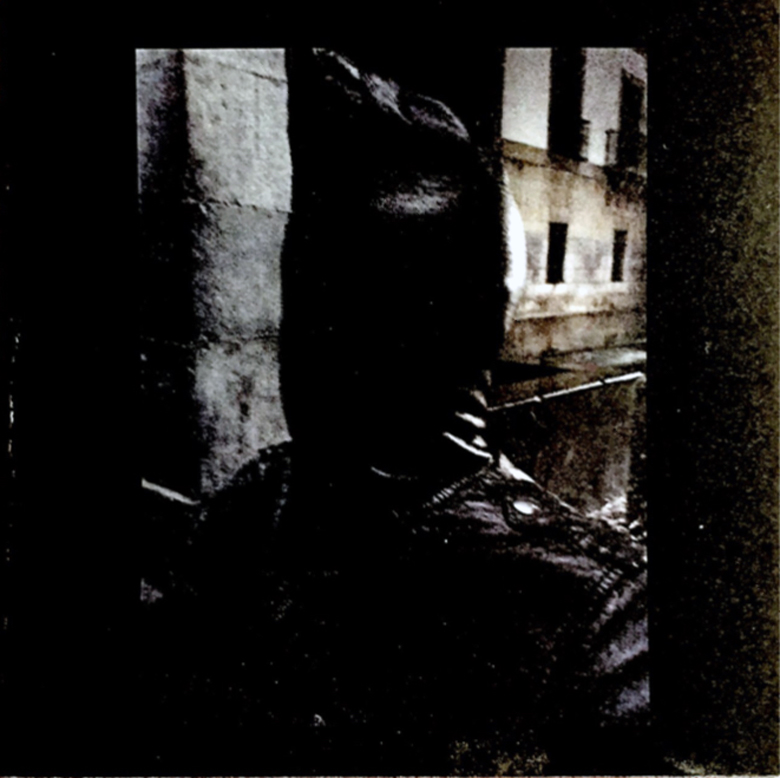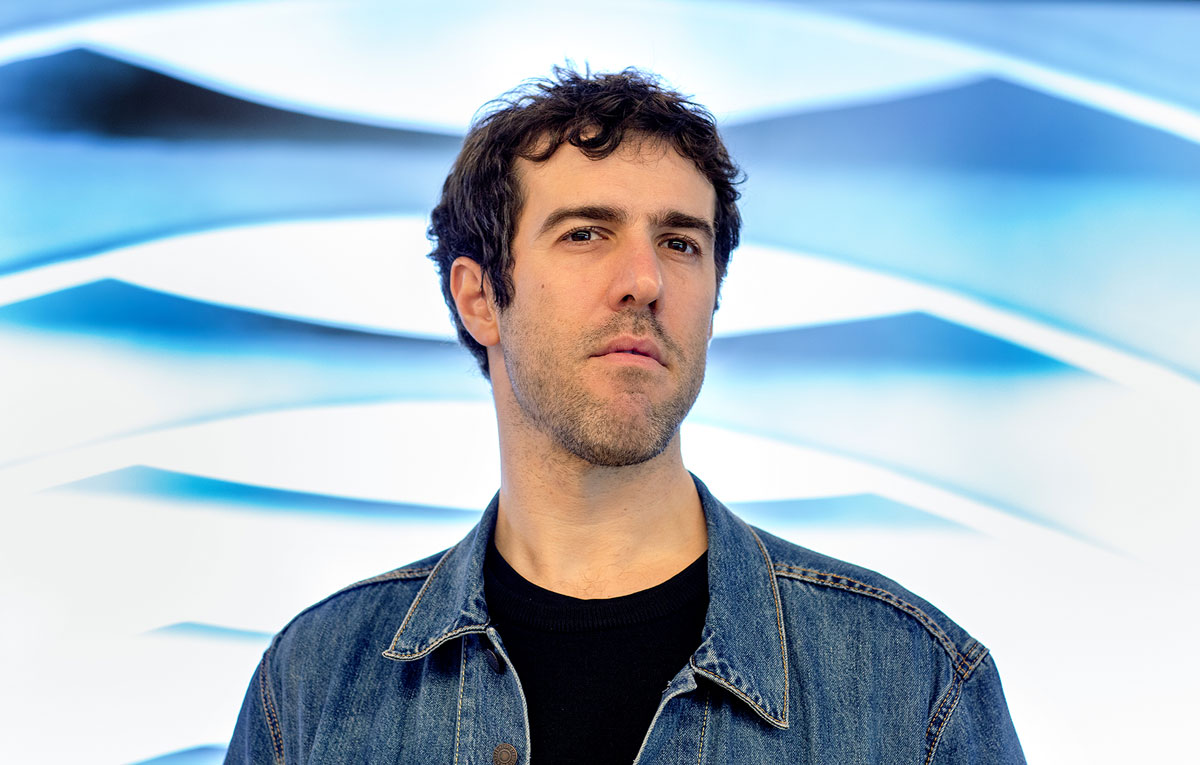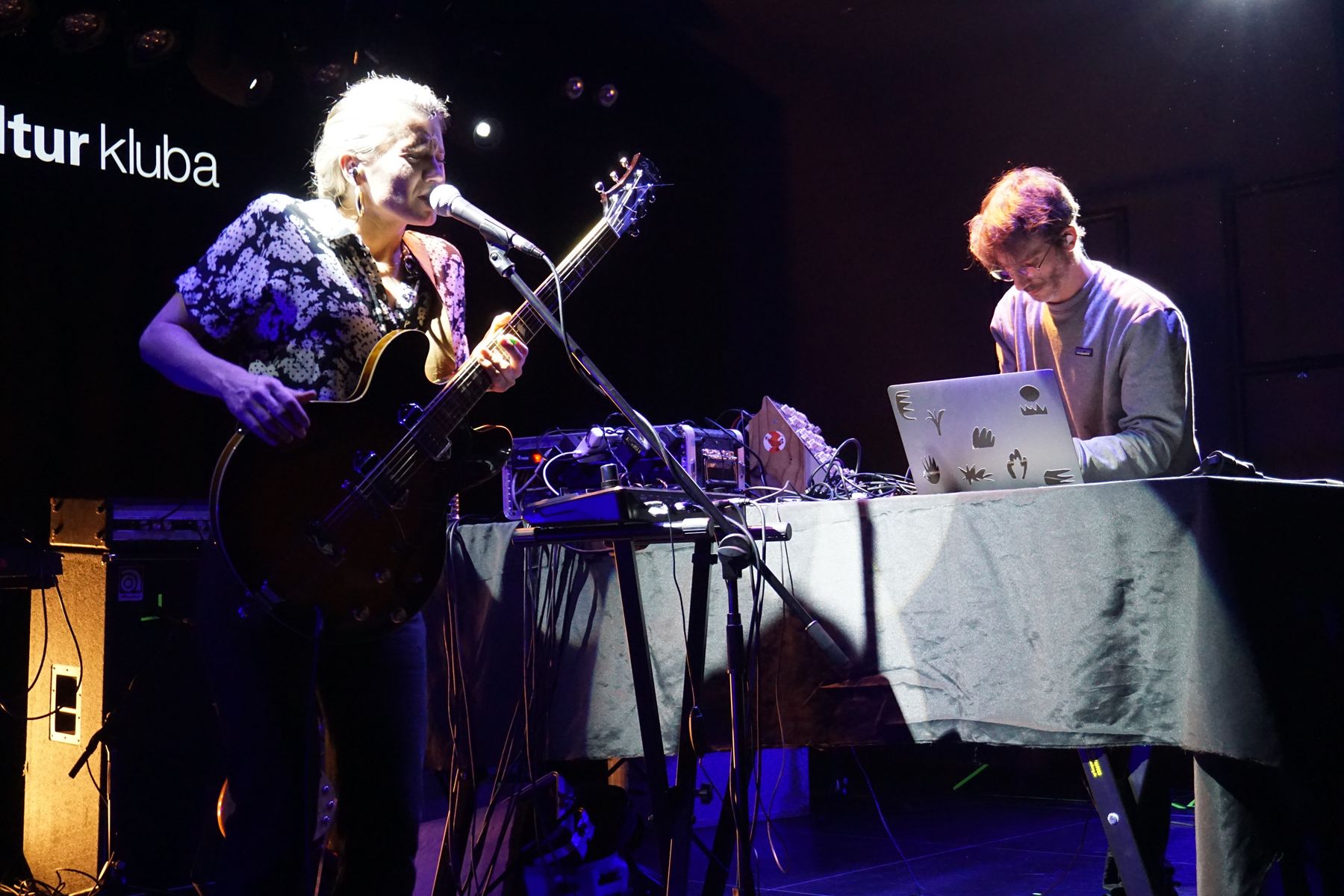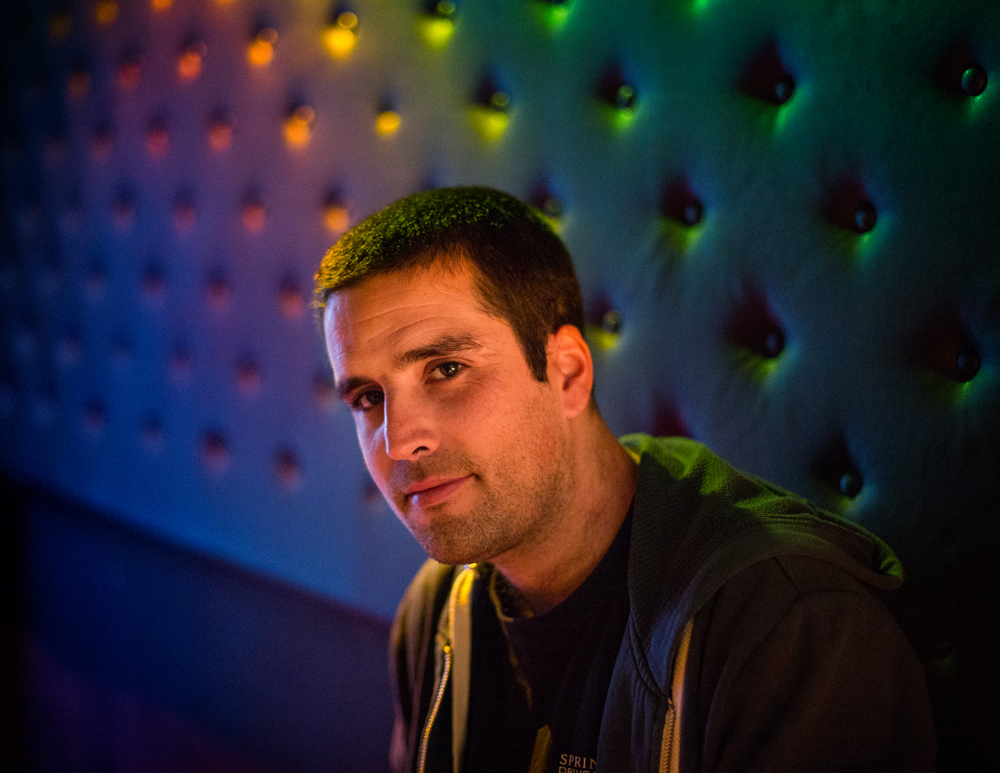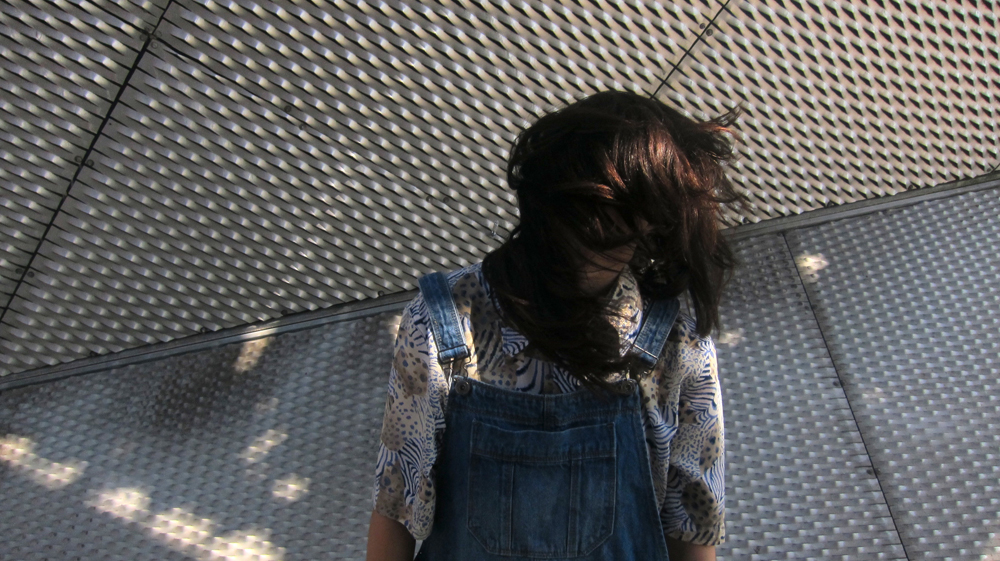"I want to look for the limits of machines."
- Amsia is one of the most experienced artists in the world of electronics in our environment. He has been making songs for over twenty years that want to have sound journeys surrounded by all kinds of hardware, samplers, synthesizers and computers. He doesn't like to get out there much, but Kukuherri has accepted the invitation to talk to the new album and welcomed us into his house. Preparing tea and nuts, he starts talking about his trajectory and comments to realize the scene of the 90, the mainstream and underground, or the vicissitudes of the current musical market.
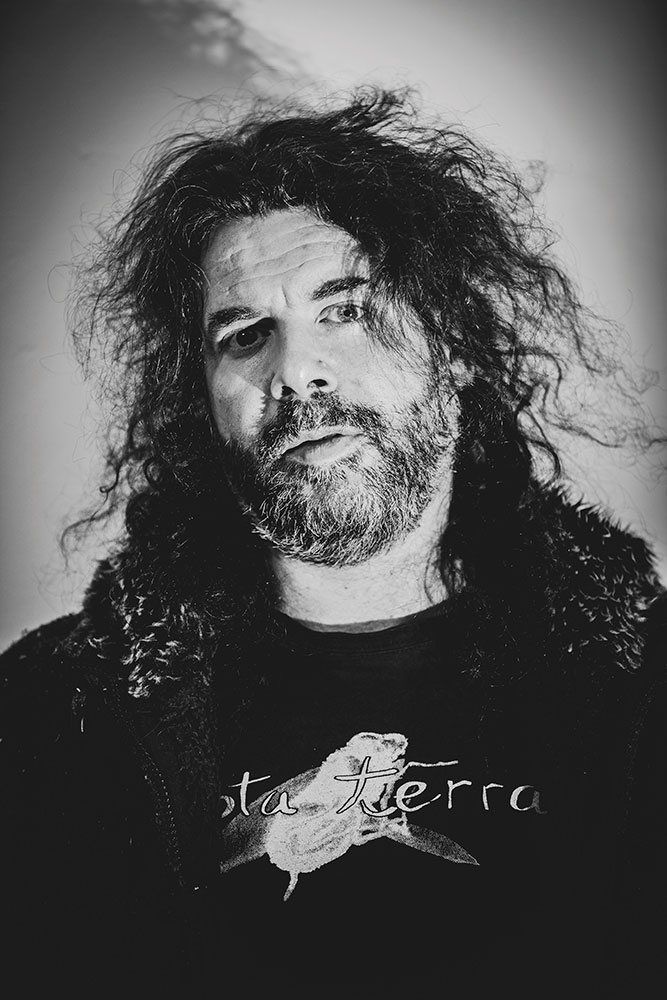
Despite its first musical steps as a battery, the machines have always attracted Javier Ucar ‘Amsia’ (Azkoitia, 1976). His father approached the computer world that was fond of video games at first, music later. Since then, it has known first-hand the evolution of computer technology and continues to create new songs with the obsolete machines that have remained on the way. Although the battery is forgotten, it still leaves the percussion when it comes to making songs. “When I think about music, I think of percussion, much more than melody.” The new album Kukuherri, edited by the albums Series Negras and Zona Watusa, in vinyl and cassette respectively, gathers the works carried out in recent years. “The best thing is that there is nothing of the pandemic, everything is much earlier. But I struggle to publish.” Once it's started to publish something, it's been selective: instead of hanging on the net, it's promoted by mail, sending it directly to potential listeners. “It’s a way to give more importance to the listener than to the product. In short, it’s a sensible job that needs a little mime.”
What was the music scene around you at the time you started?
There was a generational change going on. The shadow of the RRV [Rock Radical Vasco] persisted, but a kind of decadence could be seen. Just then began the Arto Artian project. I had already given some Matadeix concert. At that time, Amore's 713th Carlos Disaster came to live here and said: join us on his tour. I needed a name to put it on the poster. Then, following a drawing that was on the premises, he came up with Amsia, a brand of cars and a Japanese doll. With them I was on tour around Málaga, Valencia, Barcelona, Zaragoza, and in the surroundings. It happens that it has always been difficult to give concerts here. There was a scene of the cheesemakers, but there was a predominant vindictive and wrestling view of music, and those of us who didn't get there were left out of that scene. Of course, I gave some concerts, but the overall programming criterion was another.
After four years of collaboration with Carlos Tambor, he started alone.
Yes, in 2003 I started solo festivals: Sonar, Confluences, Electronikaldia, MEM, Ertzean… Although surprising, I realize that I still use a similar equipment to that of the time. The computers at the time didn't have the strength of the current computers, and hardware was used to produce music. At present, however, most sound processes are carried out by computer. Those hardware are totally devalued, but I'm looking for them. It can also be a matter of generation. There's something I'm very interested in, in the sound they generate, in functioning, in the way I work.

What exactly?
I'm looking for machine boundaries. When you use the hardware to create it, you start to experience its possibilities and limitations. For example, I've created systems to see how many notes a machine can accept. There comes a time when you don't accept more notes, and then you start doing strange things because it's not designed for it. At that moment, I begin to get interested in the character of sound. Many times these tests have no musical value, but they are part of the creative process. I've changed the way sound works on my new album. Those of us in electronic music typically look for synthetic sounds, but this time I've introduced sounds that want to be samplers of classic instruments, which have become totally obsolete. Hear the trumpet and say: “That’s not a trumpet.” That's what I've been looking for: to give a second life to that trumpet that has no trumpet sound.
"My album may seem very chaotic, but it has a clear direction, I know where I want to go."
The songs have come from experimentation with synthesizers.
I have spent the last four years designing and building modular synthesizers at the Befaco company in Barcelona. You have to do a lot of tests in that work, and I've brought all those tests to the music. In the new album the composition has not been the basis of the creation process. “I’m going to start making a song of this kind or another”… no. There have been more: “I’m going to test these machines, and I’m going to experience the small, autonomous systems that are generated in them.” In this sense, some synthesizers, such as Doepfer, Mutable Instruments or DIY (Do it yourself), have influenced me more than musicians, because I have developed the sound from machines created by them. Once the sound has been achieved, I move on to the assembly. I set up the piece following the path suggested by the piece itself. In the previous albums there are more pieces in the form of a song. On this occasion, I have gathered everything that has remained of the workforce of recent years.
It provides a fairly rational process.
Yes, sound mounting is a rational process, or if you want a technician. In any case, the musical outcome leads us to abstraction, and that's what I'm looking for as well. That’s why I’m not right with the “experimental” label. I would make experimental music if I couldn't predict the outcome. My album may seem very chaotic, but it has a clear direction, I know where I want to go. I understand it as a journey, with its narrative thread, which gathers diversity along the way. Therefore, yes, the process is based on experimental forms performed with synthesizers, but once I begin to shape it ceases to be experimental. What happens is that the “experimental” has become a simple label that serves to catalog all the music that does not fit into some patterns.
How would you call what you do?
I make a sound collage, unintentionally related to the music that was made in the '60s, if we look at how the artists then saw the possibilities of using the machines. The great revolution of sound machines has been the recordplayer. It's a very modern invention. Until the beginning of the last century, the only way to listen to music was someone playing some instrument. With the invention of gramophones, music becomes reproducible and can be encapsulated for the first time. This represents a breakthrough for avant-garde musicians, since from there arise different types of techniques: accelerating, braking, cutting, gluing... most of the samplers today are based on these techniques. And there was a musician who explored a current in these techniques. Pierre Schaeffer, Bernard Parmegiani, Tod Dockstader… I feel close what these musicians did. I've changed my creative process, but from a sound point of view it's like the first record almost 20 years later. When you've been in music for so long, the hardest part is to find the sound that motivates you. It defines a line that runs out of it to realize. So, you have to rethink everything, without doing the same thing to continue down the same path. Because not going forward or going back in the generation is falling into a well. It doesn't matter what artistic discipline.
"I do not share the identification of success with [major events]. I look for something else."
Has it happened to you many times?
Constantly. Right now, for example, I feel like I'm exhausting the road so far. Don't get out of that feeling if you don't keep working. As the other said, inspiration has caught me at work. It helps me to overcome those moments, for example, buying a new machine – a second-hand, cheap one – or reading the manual of some machine, which I normally do not read, or listening to music. When you're used to working alone, it also works to work with other people. Being part of a larger project rather than being a complete self. I have acted, for example, in the Porcopolis project of Berta Tarragó, with Juan Navarro and Pablo Gisbert; or I have sounded in the animations of Izibene Oñederra; or I collaborated with the musician Ander Agudo (X-60) on the album Cumolo bala. In Kukuherri too Tomomi Kubo has helped me in the Shinjuku piece. He is a renowned Japanese in Barcelona, who plays a special instrument called Ondes Martenot. The title of the piece comes from a Tokyo neighborhood. With the help of Tomomi, I think I have received well the “spirit of the neighborhood” that has been incorporated there. 
I've read somewhere that you're an artist fleeing the mediocrity of your time. Do you feel that way?
[Laughs] I don't know who would write that. But I cannot be satisfied by repeating the same formula. What I'm least interested in about music is that. I see musical groups in search of success, as if the remuneration of the work done was that. But success, actually, is so relative -- is selling 40 records successful? According to the buyer, it may be amazing. But selling 40 records for anyone who has wagered hard is a failure of their life. They'd leave the music.
It's also a symptom of the time. It seems that everything is measured in figures and also in culture.
I understand that that also has to be, that everything cannot be based on artists who move twenty people. But mainstream music doesn't live like me, but as a product of an industry that's driven by interests. There are some producers and a lot of people who have to work, and those people need all those star musicians to attract a lot of listeners and move all the machinery. The big events have to follow, there are many who live. I've also been a sound technician. But I don't share identifying myself with that success. I'm looking for something else.
I could write this chronicle beforehand, although the sensory experience of the nightclub is difficult to describe in a few characters. The hegemonic discourse has also prevailed in manifestations outside the cracks of official culture. The story of what happens in the... [+]
Munduko bazter ugaritan utzi du bere marka musika elektronikoko musikari eta DJ bezala; ezabaezineko lorratza da El Txef-A-rena, baina aldi batez bere alderdi hori isilarazi du, barneko musikari heterodoxoari ate-leihoak zabaltzeko. Markak filmerako egindako soinu bandatik... [+]
Lumik eman digu neguko haize eta hotzari aurre egiteko aukera. Itzal zikinak lan berria aurkezten aritu dira Orbeleko lagunekin, aretoa erdi bete erdi hutsik zutela. Bertaratu ez direnen kalterako. Zoragarria izan da.













